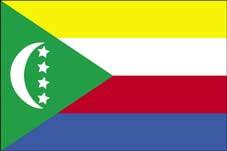Knowledge Management Key in Agricultural Sector
By Dorcas Kabuya Chaaba
When God created the whole world and placed Adam and Eve in the Garden of Eden, he instructed them not to eat from the tree of knowledge. And when they discovered that they had no clothes after disobeying the instruction, they had to find ways and means of covering their nakedness. Their finding a solution to their problem was the beginning of knowledge management (KM) for mankind and a clear indication that knowledge resides in people.
Since knowledge resides in people, it must be documented and shared to help decision-making and problem-solving as it is passed on from one generation to the other. KM is, therefore, the process of identifying, creating, capturing, storing, distributing and effectively using knowledge. Worldwide, KM has been recognised as a cornerstone for the success of any organisation as it enables the identification, capturing, documentation and dissemination of relevant information.
KM in agriculture is relatively a new idea in Africa and most developing countries, which requires a lot of attention to have an impact. KM is a process of realising, identifying a knowledge gap and finding solutions to reduce the struggle by the organisation and people from going in circles.
In pushing the agenda of KM in the agriculture sector, the Forum for Agricultural Research in Africa (FARA) working jointly with Sub-Regional Agricultural Research organisations, the African Forum for Agricultural Advisory Services (AFAAS), Association for Strengthening Agricultural Research in East and Central Africa (ASARECA), Central African Council for Agricultural Research and Development (CORAF) and the Centre for Coordination of Agricultural Research and Development for Southern Africa (CCARDESA) launched the Maiden Continental Knowledge Management for Agricultural Development Challenge.
The KM challenge is an initiative aimed at building the skills of KM practitioners in Africa. The overall objective was to enable agricultural research and innovation, including extension services, to contribute effectively to food and nutritional security, economic development and climate change in Africa through Knowledge management.
The FARA Executive Director, Yemi Akinbamijo, officially opened the conference virtually and indicated that knowledge is critical for the continent, and its contribution to the Malabo Declaration cannot be overemphasised. “FARA and its partners are knowledge-intensive organisations and do recognise that its role in leading the continent in attaining the Malabo commitments can only be sustained with the right knowledge in place,” Dr Akinbamijo stated.
He noted that knowledge is essential because it supports decision making evidence-based planning and is critical for research in generating knowledge.
He also underscored the role of agricultural research and development institutions in knowledge generation and dissemination. He further added that knowledge can be used to halt poverty by 2025 through the CAADP Malabo Commitment and contributing to the Sustainable Development Goals (SGDs). He also indicated how well the KM challenge aims to improve the capture and dissemination of knowledge in African Agricultural by bringing the appropriate capacities, establishing Community of Practice (CoPs), and strengthening knowledge generation.
And CCARDESA’s Comprehensive Africa Agriculture Development Ex-Pillar IV (CAADP-XP4) programme Coordinator, Dr Baitsi Podisi, indicated that CCARDESA places great importance on KM, adding that it is a whole thematic area in the organisation’s Strategic Plan.
Dr Podisi underscored that KM is critical in developing the agricultural sector as the institution positions itself to be the regional broker for agricultural knowledge, adding that CCARDESA will continue to work on its knowledge system, website and mobile app to serve the Farming community. “The subject of KM is crucial to CCAREDSA, and CCARDESA has been working tirelessly to build the capacity of its Information, Communication and Knowledge Management (ICKM) focal point persons in the Southern Africa Development Community (SADC) member states in this area” he emphasised.
To demonstrate the great importance CCARDESA attaches to KM, it nominated five representatives to participate in the KM for agricultural development challenges. Ms Lorato Bailang represented Botswana, Mr Bongani Mvubu represented the Kingdom of Eswatini, Mr Americo Humulane represented Mozambique. Ms Vidah Mahava represented Tanzania and last but not least, Ms Dorcas Kabuya represented Zambia.
Meanwhile, the Coordinator for the Long-term AU-EU Partnership for Food and Nutrition Security for Sustainable Agriculture (LEAP4FNSSA), Irene Annor-Frempong echoed that Africa's agricultural and food security challenges can only be addressed by locally generated data.
Dr Annor-Frempong lamented the decline in the contribution of African scientists to knowledge creation, adding that if the situation does not change, Africa is headed for doom.
The conference was organised under the CAADP-XP4 programme under the theme, ‘Strengthening the knowledge Ecosystem for improved Agricultural productivity in Africa.’ is funded by the European Union (EU) and administered by the International Fund for Agricultural Development (IFAD)
The conference culminated in the 28 KM challenge participants receiving certificates that declared them qualified KM managers fit to implement KM projects successfully. This was after a 3 months intensive training, which included presentations, knowledge cafes, and other KM challenges.
The author is an Agriculture Information Officer at the National Agricultural Information Services. She is also CCARDESA Information, Communication and Knowledge Management (ICKM) focal point person for Zambia
























































